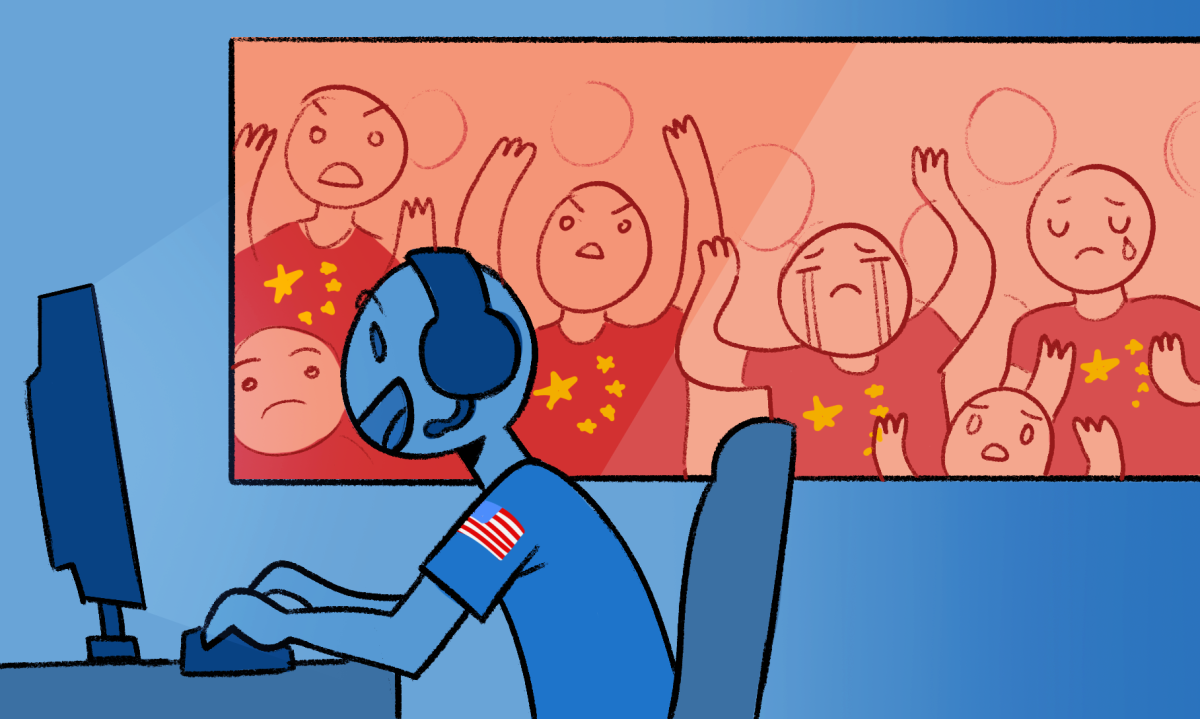
illustration by Bianca Rader
Video games have taken the modern world by storm and become popular for people of all ages. However, some governments have placed restrictions on video games, and that’s unfair to the millions of people that use it as a pastime.
Recently, the Chinese government placed a three-hours-a-week time restriction on video games for anyone under 18 years old, according to an Aug. 30 NPR article.
While people would like to think time restrictions on video games come from good intentions, governments shouldn’t be allowed to restrict how long children and teenagers can play.
Children under 18 in China can only access online games on Fridays, Saturdays and Sundays, as well as national holidays, and only between 8 p.m. and 9 p.m, according to the same Aug 30. NPR article.
Although this law passed in China, citizens and lawmakers in the U.S. shouldn’t consider making the same steps to govern children’s video game use.
In fact, video games have many benefits.
During the coronavirus pandemic, many Americans faced stress transitioning from the office or school to working at home. In fact, 227 million or over two-thirds of Americans played video games as stress-relief, according to a July 13 USA Today article.
If limited playing time for video games were to be pushed for anyone below 18 years of age in the U.S., many children would be in a state of constant stress.
Video games allow children and adolescents to virtually see their friends, especially considering they couldn’t see them in-person because of the coronavirus.
Meanwhile, children can actually gain learning skills through video games.
Building competence, exploring autonomy and fostering friendships, are some positive things kids can gain when playing video games, according to an Oct. 8, 2018 Fuller Youth Institute blog post.
The Fuller Youth Institute is a research-based organization that assists leaders and parents in “unlocking the potential” of today’s youth, according to its website.
As the pandemic continues to rage on, video games can be used as a bridge to help children socialize in the comfort of their own homes.
While video games are exciting, it can become addicting and used as a way to tune out the world.
The World Health Organization (WHO) has added video game addiction as a disorder in it’s International Classification of Diseases on Sept. 14, 2018.
The WHO defines video game addiction as a pattern of gaming behavior “digital-gaming” or “video-gaming” characterized by impaired control over gaming, increasing priority given to gaming over other activities to the extent that gaming takes precedence over other interests and daily activities.
More classification is a continuation or escalation of gaming despite the occurrence of negative consequences, according to the same WHO article.
To classify something as an addiction, however, is extremely circumstantial and not at all uncommon amid other activities or hobbies.
Food and social media abusers can even be classified as “addicts” as too much of anything is dangerous.
There are ways to limit children from developing an addiction that are within the household’s control.
Current major devices used to play video games, including consoles, phones and tablets, have parental control options and allow parents to configure what their child can do on a device.
Companies including Apple have support pages to guide parents in setting up limitations on how long they want their children to play online.
The amount of control parents already have to limit what their children can do on their devices is extensive.
Parents are responsible for their children, the government isn’t.
Governments shouldn’t step in for the parents’ lack of understanding of technology.
If parents aren’t willing to understand the technology they buy for their children, what will it take for them to learn what their children are doing online?